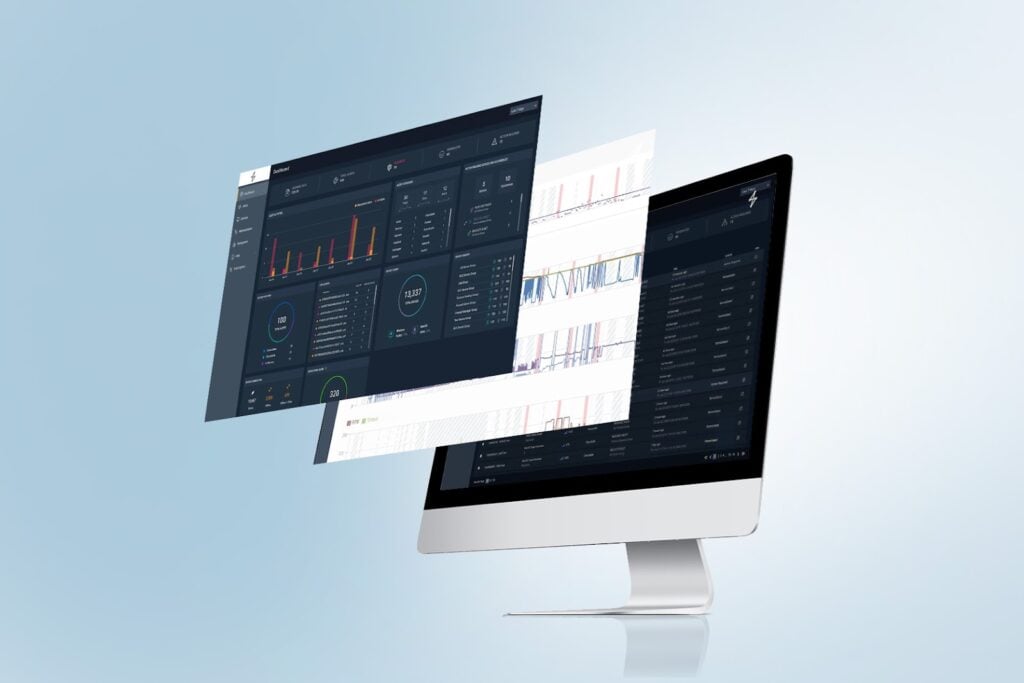SparkCognition’s focus is on creating world-class artificial intelligence (AI) solutions to solve critical problems for industries like energy, manufacturing, and finance. Tracking where the technology is moving means following novel AI applications in sectors like healthcare, too—a huge frontier for artificial intelligence with massive implications for people around the globe.
For over a decade, the promise of AI to transform healthcare has been seen in many corners of the business world as the giant brass ring that will help the technology realize its true potential.
From cutting the duration of a magnetic resonance imaging scan by 75% to creating personal AI health concierges, harnessing AI to produce better health outcomes sounds to many like the best possible use of the technology.
That’s why some of the world’s largest healthcare corporations have spent billions of dollars exploring ways to use AI to improve diagnostics, reduce common errors in care, and discover possible new pharmaceuticals or combinations of drug therapies.
In fact, the original reason IBM pursued building the Watson AI supercomputer—at an estimated cost of $5B with a dedicated workforce of 7,000—was to drive impact (and profit) in healthcare.
IBM’s interests show how far-reaching advancements made in AI research can be, with discoveries in one sector leading to benefits in entirely different fields. One example of this comes from the image recognition capabilities of AI as a whole. The power to quickly evaluate libraries of images—some with missing or insufficient data—has provided tremendous value in medical imaging but also has implications for wholly unrelated industries. Whether searching for hidden early-stage cancer or evaluating geological formations to better predict and understand seismic activity, the benefits of AI cross-pollination can be transformative. Successful AI-enabled applications and problem-solving in one research area can often lead to exciting new horizons elsewhere.
Still, as a whole, the healthcare sector has mostly taken a fragmented, piecemeal approach to adopting AI technology. That means many opportunities have gone unrealized, including IBM’s eventual decommissioning of Watson before it managed to revolutionize the identification of novel treatments and introduce all-new care protocols.
Optimism and investment remain high
There is still plenty of business interest in how AI can improve and optimize healthcare in the U.S. and beyond.
That interest aligns with continued bullishness in AI overall, with CB Insights reporting that healthcare investment accounted for roughly 20% of the more than $66B invested in AI in 2021. That total investment represented a 108% increase from the 2020 investment in AI, more or less matching the growth rate shown in data from Rock Health and Politico, which showed AI investment in healthcare growing from $4.8B to $10B in 2021. Amid concerns over inflation and a slowing economy, AI investment related to healthcare stood at approximately $3B through the first half of 2022.
Typical roles for AI in the current medical environment include imaging analysis in fields such as radiology and CT scans and helping healthcare providers make the best decisions about treatment programs and patient needs.
IBM, which is still involved in healthcare even after Watson’s reduced role, sees potential for AI in using machine learning models to monitor patients in critical care, with the company’s technology achieving 75% success in the early detection of severe sepsis in infants.
Other possibilities include:
- AI virtual assistants that tend to care needs based on medical history and personal preferences
- Analyzing vast libraries of medical images to detect population-level healthcare patterns
- Creating more powerful drug designs while improving the management of patients’ prescription schedule
And a look at the variety of startups pursuing new ways to deploy AI to address healthcare needs shows there is still plenty of brainpower, along with dollars, trying to improve how patients are treated in clinics, emergency rooms, and on the operating table.
Persistent obstacles
Despite hefty interest and newsworthy investments, the overall rate of AI adoption in the medical sector has been laggard. Politico’s analysis of job postings involving AI tech showed that construction was the only major industry slower than healthcare in embracing AI.
This lack of traction is due to a number of factors, including federal regulators’ slow pace in modernizing their oversight of AI technologies related to healthcare. That problem also exists worldwide, with Australian healthcare experts recently noting that despite more than 350 AI healthcare technologies available in the market, no more than five have been subjected to clinical trials.
And Politico found that healthcare systems tend to pursue creating their own bespoke AI tools that meet the specific constraints of their infrastructure for medical records, billing, and care delivery. With AI developers scarce and their services expensive, progress in advancing medical technology will almost certainly come slowly and in fragments that prevent compatibility with other systems or governmental agencies.
There is also the issue of biased or limited data sets. A recent Cosmos article noted that AI’s facial recognition problems with non-white demographic groups are likely to factor into analyzing groups who haven’t been adequately included in machine learning training datasets. Much like how AI learning has relied heavily on U.S.— and Eurocentric datasets, healthcare image libraries that don’t include large and varied samples across all demographics can result in missed or inaccurate diagnoses.
As the world’s population continues to grow and age, new approaches to providing healthcare in effective and efficient ways will become more critical.
Whether discovering new drugs, quickly analyzing diagnostic tests, or providing recurring therapies, the ability of artificial intelligence to make meaningful life-saving contributions may be among the greatest contributions AI can make to humanity.
For a U.S. healthcare system that struggles to deliver effective care and carries burdensome costs for routine tests and procedures, massive change brought on through AI adoption can’t come soon enough.
















